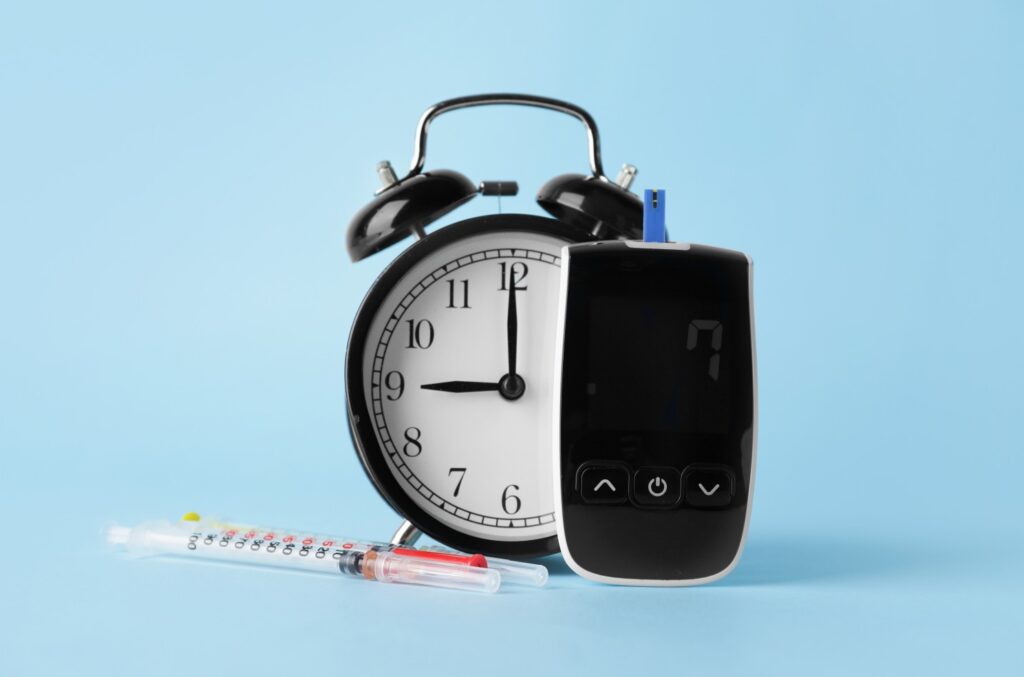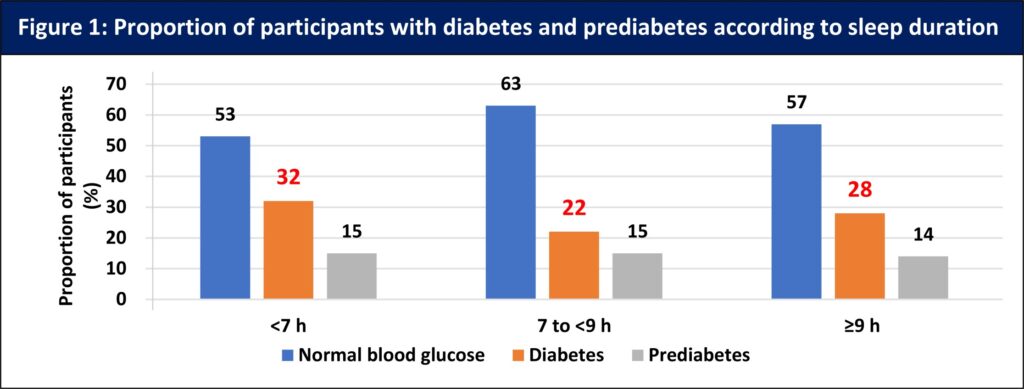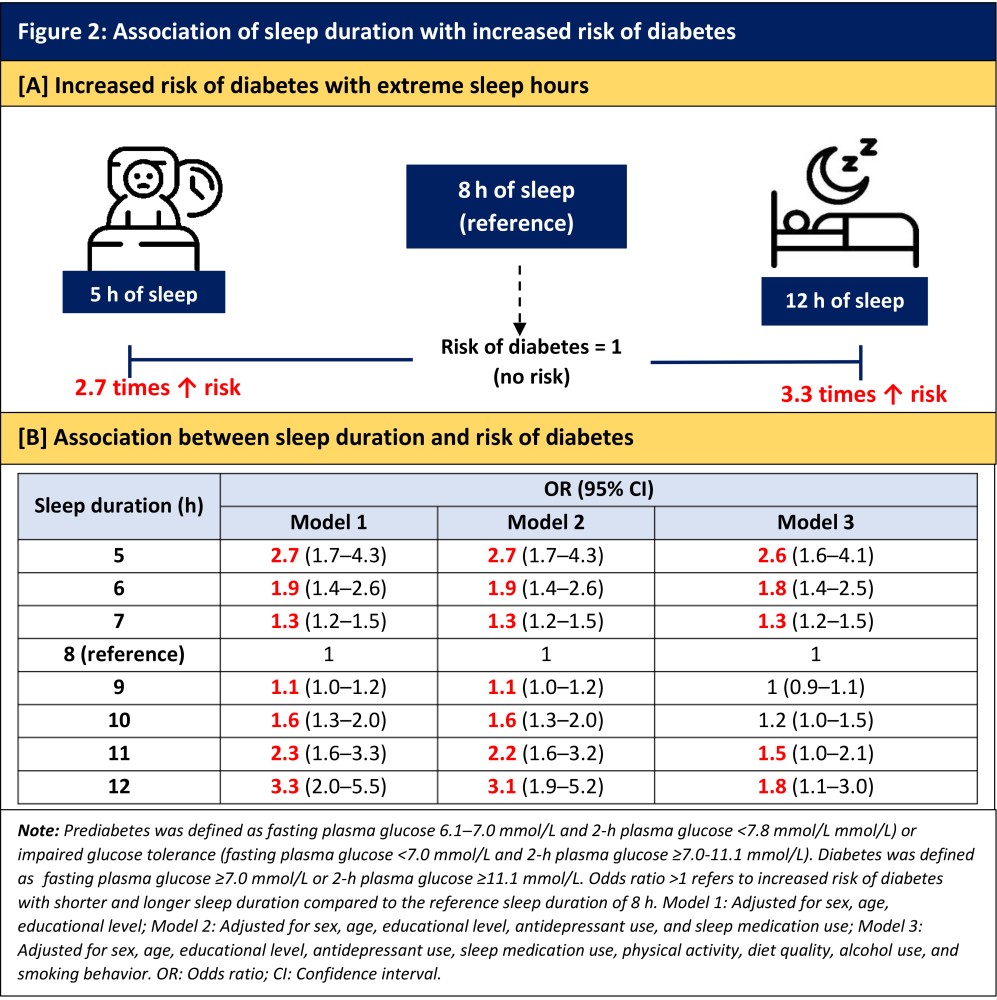
Lifestyle factors like diet, physical activity, smoking behavior, and alcohol consumption are well-documented risk factors for diabetes. There is a growing evidence that sleep and its attributes such as duration, quality, regularity, disturbance, and timing also potentially contribute to diabetes risk. A recent study published in the journal, Sleep Health by the National Sleep Foundation, reported a positive association between extreme sleep patterns, such as excessive sleep (>12 h) as well as insufficient sleep (<5 h), and risk of developing type 2 diabetes. Importantly, this association was independent of lifestyle factors, viz., smoking behavior, alcohol consumption, diet, and physical activity.
This cross-sectional study analyzed data of 5,561 adults (mean age = 60.1 years; 50% females) collected from the Maastricht Study, an observational prospective population-based cohort study, to evaluate the association between sleep duration and diabetes or prediabetes risk. Glucose metabolism status of the participants was checked using standardized 2-h 75-g oral glucose tolerance test after overnight fasting. Sleep duration was defined as in-bed time (minutes) and assessed using data recorded by a thigh-worn accelerometer. Participants were instructed to wear the accelerometer continuously for 8 days without removing or reattaching the device. Multinomial logistic regression analysis was used to assess the association between the sleep duration and diabetes risk. The association was also assessed after adjusting for gender, age, educational level, the use of sleep medication or antidepressants, and lifestyle risk factors (diet quality, physical activity, smoking behavior, and alcohol consumption).
The study results are summarized below:
- Glucose metabolism status: Of the total participants, 60% had normal blood glucose, while 24.1% had diabetes and 15% had prediabetes.
- Sleep duration: 8% of the study participants slept for <7 h, approximately 73% slept for 7 to <9 h, and about 19.3% slept for 9 h or more.
- Relationship between diabetes and sleep duration: Greater proportion of participants with diabetes (32%) reported to have sleep duration of <7 h more often (Figure 1).
- No significant association was noted for prediabetes and sleep duration (Figure 1).
- Sleeping for an extended period (12 h) and shorter period (5 h) was linked to increased likelihood of developing type 2 diabetes compared to the reference sleep duration of 8 h (Figure 2A].
- The relationship between diabetes and sleep duration was independent of other lifestyle factors such as diet quality, alcohol use, smoking behavior, and moderate-to-vigorous physical activity. (Figure 2B).


Clinical implications
- This study emphasizes that sleep duration is a potential risk factor for type 2 diabetes. Timely management can help in alleviating the ill-effects of abnormal sleep pattern/behavior.
- The link between sleep duration and diabetes appears to be influenced by obesity, and efforts to manage obesity could potentially improve sleep quality and reduce the risk of diabetes.
(Source: Albers JD, Meertens RM, Savelberg HHCM, Köhler S, Wesselius A, Schram MT, Stehouwer CDA, de Galan BE, van Greevenbroek MMJ, van der Kallen CJH, Eussen SJPM, Bosma H, Schaper NC, Koster A. Both short and long sleep durations are associated with type 2 diabetes, independent from traditional lifestyle risk factors-The Maastricht Study. Sleep Health. 2023;S2352-7218(23)00131-6. Doi:10.1016/j.sleh.2023.06.009)
